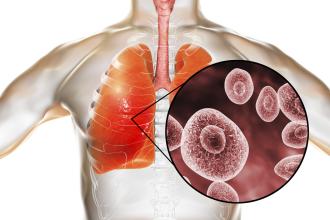Innovative coating for blood vessels reduces rejection of transplanted organs
Researchers at UBC have found a way to reduce organ rejection following a transplant by using a polymer to coat blood vessels on the organ to be transplanted. The polymer substantially diminished rejection of transplants in mice when tested by collaborators at SFU and Northwestern University.
The polymer was developed by UBC pathology and laboratory medicine professor Dr Jayachandran Kizhakkedathu and his team at the Centre for Blood Research and the Life Sciences Institute. The findings were published recently in Nature Biomedical Engineering (www.nature.com/articles/s41551-021-00777-y).
The discovery has the potential to eliminate the need for drugs on which transplant recipients rely to prevent their immune system from attacking a new organ as a foreign object. Dr Kizhakkedathu explained that blood vessels in organs are protected with a coating that suppresses the immune system’s reaction, but in the process of procuring organs for transplantation, the coating is damaged and no longer able to transmit the message. Dr Kizhakkedathu’s team synthesized a polymer and developed a chemical process for applying it to blood vessels. He worked with UBC chemistry professor Dr Stephen Withers and the study’s co-lead authors, PhD candidate Daniel Luo and recent chemistry PhD Dr Erika Siren.
The procedure has been applied only to blood vessels and kidneys in mice so far, but researchers are optimistic it could work equally well on lungs, hearts, and other organs. Clinical trials in humans could be several years away.
The research was supported by CIHR, NSERC, UBC, SFU, the Heart and Stroke Foundation of Canada, GlycoNet, and the Michael Smith Foundation for Health Research.

